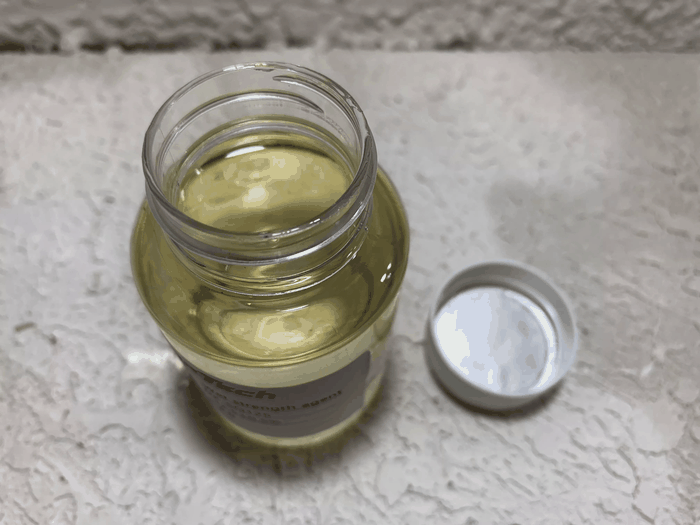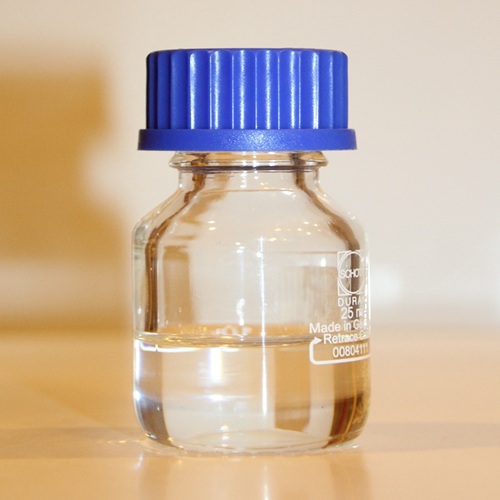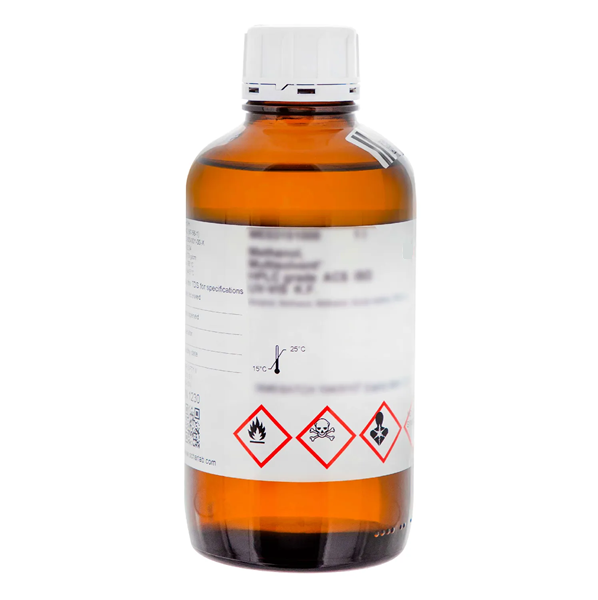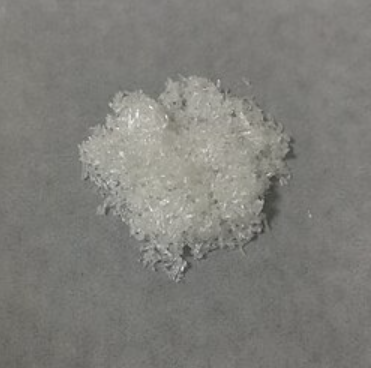Tetraethylene glycol di-p-tosylate
Synonym(s):Tetraethylene glycol ditosylate
- CAS NO.:37860-51-8
- Empirical Formula: C22H30O9S2
- Molecular Weight: 502.6
- MDL number: MFCD00075239
- SAFETY DATA SHEET (SDS)
- Update Date: 2025-09-17 10:44:43

What is Tetraethylene glycol di-p-tosylate?
Description
Tos-PEG5-Tos is a PEG linker containing two tosyl groups. The hydrophilic PEG spacer increases solubility in aqueous media. The tosyl group is a very good leaving group for nucleophilic substitution reactions.
The Uses of Tetraethylene glycol di-p-tosylate
Tetraethylene glycol di(p-toluenesulfonate) was used in the preparation of donor-spacer-acceptor podand system, dual channel fluorosensor for Li+, Mg2+ and Ca2+.
Storage
Powder: -20°C for 3 years | In solvent: -80°C for 1 year;
Properties of Tetraethylene glycol di-p-tosylate
| Melting point: | 65-69 °C |
| Boiling point: | 635.0±55.0 °C(Predicted) |
| Density | 1.242 g/mL at 25 °C (lit.) |
| refractive index | n |
| Flash point: | >230 °F |
| storage temp. | Sealed in dry,Room Temperature |
| form | clear liquid |
| color | colorless to yellow |
| BRN | 1610992 |
| InChI | InChI=1S/C22H30O9S2/c1-19-3-7-21(8-4-19)32(23,24)30-17-15-28-13-11-27-12-14-29-16-18-31-33(25,26)22-9-5-20(2)6-10-22/h3-10H,11-18H2,1-2H3 |
| EPA Substance Registry System | Ethanol, 2,2'-[oxybis(2,1-ethanediyloxy)]bis-, bis(4-methylbenzenesulfonate) (37860-51-8) |
Safety information for Tetraethylene glycol di-p-tosylate
| Signal word | Warning |
| Pictogram(s) |
 Exclamation Mark Irritant GHS07 |
| GHS Hazard Statements |
H315:Skin corrosion/irritation H319:Serious eye damage/eye irritation H335:Specific target organ toxicity, single exposure;Respiratory tract irritation |
| Precautionary Statement Codes |
P261:Avoid breathing dust/fume/gas/mist/vapours/spray. P264:Wash hands thoroughly after handling. P264:Wash skin thouroughly after handling. P271:Use only outdoors or in a well-ventilated area. P280:Wear protective gloves/protective clothing/eye protection/face protection. P302+P352:IF ON SKIN: wash with plenty of soap and water. P305+P351+P338:IF IN EYES: Rinse cautiously with water for several minutes. Remove contact lenses, if present and easy to do. Continuerinsing. |
Computed Descriptors for Tetraethylene glycol di-p-tosylate
| InChIKey | SLAONPBUWDUSSO-UHFFFAOYSA-N |
| SMILES | O(CCOCCOS(C1=CC=C(C)C=C1)(=O)=O)CCOCCOS(C1=CC=C(C)C=C1)(=O)=O |
New Products
Indole Methyl Resin tert-butyl 9-methoxy-3-azaspiro[5.5]undecane-3-carboxylate Boc-His(Boc)-OH 2-CTC Resin 4-Chloro-7-tosy1-7Hpyrrolo[2,3-d]pyrimidine 5,7-Dibromo-1H-indole 2,5-dichloro-N-hydroxy-4,6-dimethylpyridine-3-carboximidamide 2,2-Dimethoxy-7-azaspiro[3.5]nonane hydrochloride 4-chloromethyl-5-methyl-1,3-dioxol-2-one (DMDO-Cl) R-2-BENZYLOXY PROPIONIC ACID 1,1’-CARBONYLDIIMIDAZOLE 1,1’-CARBONYLDI (1,2-4 TRIAZOLE) N-METHYL INDAZOLE-3-CARBOXYLIC ACID 4-((2-hydroxyethyl)thio)benzoic acid 1-(TERT-BUTOXYCARBONYL)-2-PYRROLIDINONE Methyl 6-methylnicotinate 3-Pyridineacrylic acid tert-Butyl carbazate TETRAHYDRO-2H-PYRAN-3-OL 2-((4-morpholinophenylamino) (methylthio) methylene) malononitrile 3-(4-morpholinophenylamino)-5-amino-1H-pyrazole-4-carbonitrile 2,4-dihydroxybenzaldehyde 1,3-Diethyl-1,3-Diphenylurea Methyl 2-methylquinoline-6-carboxylateRelated products of tetrahydrofuran




![2-[2-[2-(2-Hydroxyethoxy)ethoxy]ethoxy]-1-(p-toluenesulfonyl)-ethanol](https://img.chemicalbook.in/CAS/GIF/77544-60-6.gif)
![Ethanol, 2-[2-(2-hydroxyethoxy)ethoxy]-, 1-(4-Methylbenzenesulfonate)](https://img.chemicalbook.in/CAS/GIF/77544-68-4.gif)


You may like
-
 37860-51-8 ((Oxybis(ethane-2,1-diyl))bis(oxy))bis(ethane-2,1-diyl) bis(4-methylbenzenesulfonate) 98%View Details
37860-51-8 ((Oxybis(ethane-2,1-diyl))bis(oxy))bis(ethane-2,1-diyl) bis(4-methylbenzenesulfonate) 98%View Details
37860-51-8 -
 Tetraethylene Glycol Bis(p-toluenesulfonate) CAS 37860-51-8View Details
Tetraethylene Glycol Bis(p-toluenesulfonate) CAS 37860-51-8View Details
37860-51-8 -
 Tetraethylene glycol bis(p-toluenesulfonate) 98% CAS 37860-51-8View Details
Tetraethylene glycol bis(p-toluenesulfonate) 98% CAS 37860-51-8View Details
37860-51-8 -
 Tetraethylene glycol di(p-toluenesulfonate) CAS 37860-51-8View Details
Tetraethylene glycol di(p-toluenesulfonate) CAS 37860-51-8View Details
37860-51-8 -
 Pyridine 99.5% HPLC /UV SpectroscopyView Details
Pyridine 99.5% HPLC /UV SpectroscopyView Details
110-86-1 -
 Dibutyl PhthalateView Details
Dibutyl PhthalateView Details
84-74-2 -
 Imidazole Spot supply, competitive priceView Details
Imidazole Spot supply, competitive priceView Details
288-32-4 -
 Thiourea 99% ARView Details
Thiourea 99% ARView Details
62-56-6
Statement: All products displayed on this website are only used for non medical purposes such as industrial applications or scientific research, and cannot be used for clinical diagnosis or treatment of humans or animals. They are not medicinal or edible.
